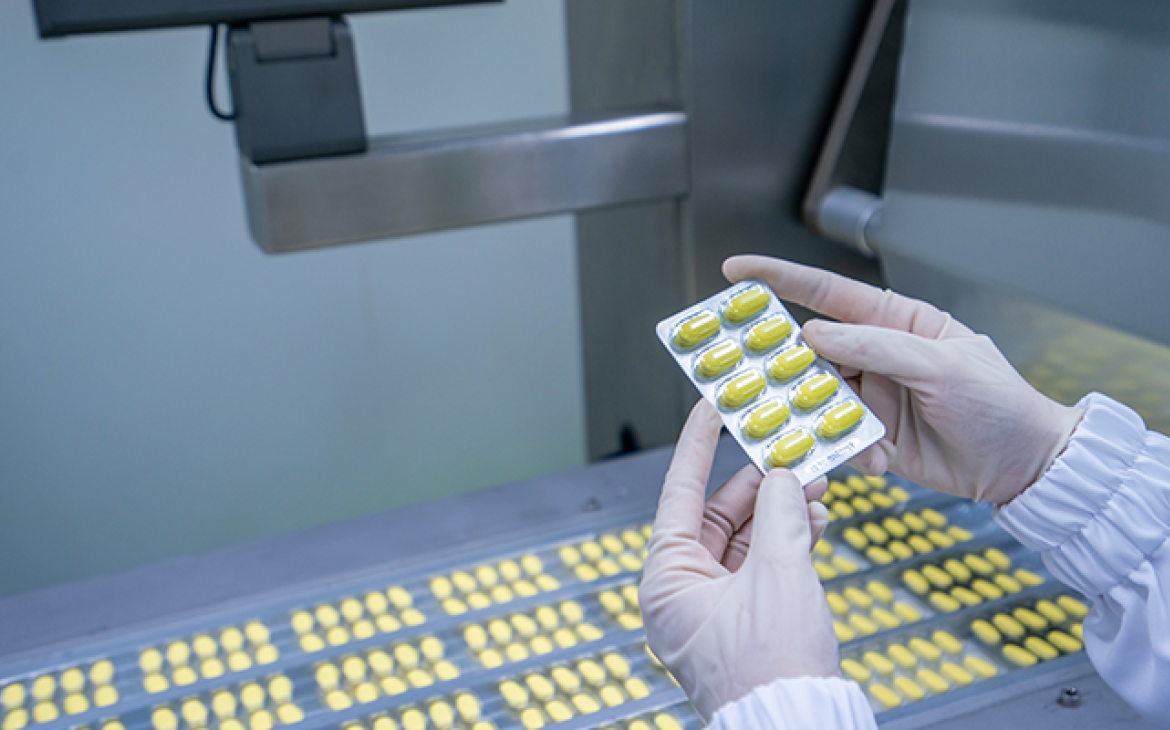
The Problem
The world has not seen a global vaccine rollout and mass vaccination campaign of this scale since polio. We will need to distribute around 10-14 billion doses to the global population before reaching the ‘herd immunity’ needed to return to normal. Vaccine manufacturers, regulatory authorities, logistics experts and healthcare practitioners alike are facing the challenge of delivering billions of vaccine doses around the world and ensuring that every dose remains safe and effective. The U.S. Pharmacopeia (USP), World Health Organization (WHO) & Sabin Vaccine Institute held a virtual forum in March 2021 to dive into existing concerns on quality, speed, and equity, and explore novel, future solutions that will bolster public trust in the vaccine effort and help ensure an equitable rollout. Those stakeholders involved in the development and distribution of vaccines – including developers, manufacturers, distributors, and healthcare practitioners – must all work together to maintain the quality of authorized and approved COVID-19 vaccines.
Key Challenges
As efforts are underway for a global mass vaccination campaign, unprecedented in both scale and urgency, the journey of vaccine development and distribution has exposed the strengths and weaknesses of the medical products supply chain and of healthcare systems. As vaccine production ramps up, the need to assure quality becomes even more important. In particular, it is essential to overcome “last-mile” challenges of transport, storing, handling, and administration into arms. These issues could include lack of refrigeration, vaccine hesitancy, insufficient training of healthcare workers, and market entry of substandard and falsified medical products.[1]
A key driver of substandard and falsified medical products is the pressure on manufacturers and distributors to cut costs—which can undermine the quality assurance process. As a result of challenges in equitable access to vaccines, it is likely that substandard and falsified vaccines will increasingly become a global problem. Not only would these vaccines not work as intended or potentially contribute to patient harm, but their presence can also erode the public’s trust in global and national vaccination programs. The sheer quantity of raw materials—i.e., ingredients—that need to be maintained and replenished in order to produce vaccines at scale—is vast. Adequate oversight by national regulators is necessary to ensure raw materials are free from contaminants and meet quality standards.
Policy Recommendations
Achieving public confidence and broad uptake of COVID-19 vaccines needed to reach population immunity will require a transparent, unprecedented effort among health workers, scientists, and stakeholders at every step of the supply chain.
USP makes the following recommendations to help ensure quality and equity of vaccines from development to distribution:
- Reduce wastage of vaccines through tools and training on proper storage, distribution, and administration of vaccines to maximize the use and impact of vaccines and preserve already scarce resources.
- Support pooled procurement mechanisms such as the COVAX facility–a global collaboration which aims to ensure fair and equitable access to quality-assured vaccines and helps tackle vaccine hesitancy–to address disparities in access to vaccines and to help disincentivize the market for substandard and falsified medicines.
- Decentralize vaccine production at the regional and country level to help ensure more equitable access to quality-assured vaccines.
- Bolster regulatory capability and oversight by national regulatory agencies, so countries can enhance delivery of quality-assured vaccines at the “last mile.” In particular, post-marketing surveillance will play a critical role in vaccine quality and safety.
- Invest in research and development, including in new technology platforms, such as mRNA vaccines and viral vector vaccines as well as in global vaccines trials and manufacturing by both the public and private sector to enable readiness of vaccine doses and speedier production.
- Encourage greater transparency and improved line-of-sight over vaccine development and distribution, so the public understands how vaccines came to be and the ingredients used. This will lead to greater public trust in the final vaccine products administered to patients.
- Encourage vaccine manufacturers and regulators to leverage public quality standards to expedite development and build trust in the quality of COVID-19 vaccines. Public quality standards, such as those developed collaboratively at USP through expert scientific committees, are recognized by regulatory authorities around the world as important tools in vaccine development and quality assurance. Even novel therapies such as COVID-19 vaccines can rely on established public standards to a) to accelerate development of aspects of manufacturing processes and b) to support quality across the supply chain.
Call to Action
In the quest to enhance public trust and confidence in efforts to rapidly develop, authorize, manufacture, and administer COVID-19 vaccines, USP calls on national regulatory agencies, vaccine developers and manufacturers, procurement agencies, suppliers, and distributors, as well as frontline health workers to continue to consider quality as a critical component in maintaining public trust in vaccines. With the 74th World Health Assembly meeting May 24-June 1, USP will engage as a non-state actor to support equitable access to quality-assured vaccines and treatments as part of the COVID-19 response. Through working together, global stakeholders can help to assure the quality of vaccines, increase equitable access to quality-assured vaccines, and maintain public trust in vaccinations.
Tools & Resources
Public Quality Standards
USP offers public quality standards, which are tools that help vaccine manufacturers with issues related to ingredients, containers (such as syringes), sterility, labeling, and packaging and distribution. Public quality standards provide benchmarks to ensure that medicine quality is consistent as approved by regulatory agencies. In addition, USP offers complimentary technical assistance to developers and manufacturers of COVID-19 vaccines.
COVID-19 Vaccine Toolkits
This COVID-19 Vaccine Handling Toolkit developed by USP provides practical guidance to healthcare practitioners on vaccine preparation, storage and transportation, and waste minimization and ancillary supply disposal. At present, the toolkit includes information on the Pfizer, Moderna, and the Johnson and Johnson/Janssen vaccines.
First-Person Use Testimonials:
“Before these toolkits came out, there is so much detail behind how to mix vaccines. I truly believe the toolkit was very valuable in these situations with pharmacists coming back to immunization who have not done it before.”
“I think the transportation of the vaccine was somewhat challenging and this [part of the Toolkit] has been extremely helpful because pharmacists know how to store it by maybe not how to transport it.”
USP is working on additional resources, including a Vaccines Quality Attributes Toolkit to help global manufacturers and regulators combat substandard and falsified medicines.
Technical Assistance
Through the USAID-funded Promoting Quality of Medicines Plus Program, USP offers technical assistance on quality assurance efforts and bolstering regulatory capabilities in low- and middle-income countries, including guidance to regulators on Accelerating the Rollout of COVID-19 Vaccines and Last-Mile Manufacturing of Vaccines on recommendations for scaling-up production of COVID-19 vaccines in Africa.
[1] Substandard medical products are those that fail to meet quality standards or specifications, or both. Falsified medical products are those that deliberately/fraudulently misrepresent their identity, composition, or source. (Source: World Health Organization)


